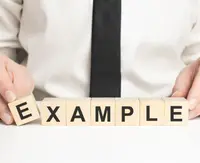
Why Are You Tested for Sentence Correction?
The following are the reasons why the sentence correction topic is included in verbal ability section:
1. Grammar Proficiency
Sentence correction tests the understanding of grammar rules, including sentence structure, subject-verb agreement, tenses, pronoun usage, and the usage of words appropriately. This proficiency ensures they can construct accurate and error-free sentences, showcasing their language competence.
2. Competent Writing skills
Sentence correction is a crucial part of developing better writing skills. By identifying and correcting errors in sentence formation, students demonstrate the ability to construct well-structured and coherent communication in written format. Professional settings give high stress on accurate writing skills.
3. Clarity of Meaning
Clarity in communication leads to effective collaboration and understanding in various professional scenarios. Correcting sentences allows students to convey their intended messages accurately. It allows them to avoid ambiguity, misinterpretations, or confusion caused by grammatical errors or incorrect sentence structures.
Sentence Correction Resources
The resources mentioned below can help you with your sentence correction preparation.

1. Examples
Examples are important in understanding the sentence correction. By using real-world scenarios and applying the rules and principles related to sentence correction, you can simplify and improve your comprehension of this topic.
View More
2. Practice Questions
Practice sample questions related to the sentence correction topic. A candidate is more likely to comprehend the concept and improve their speed and precision the more questions they practice.
View MoreFAQsFAQs
What is sentence correction in verbal ability?
In verbal ability, sentence correction refers to identifying and correcting the sentence with language or grammatical errors in a given sentence. These questions typically test knowledge of grammar rules, including sentence structure, subject-verb agreement, verb tenses, pronoun usage, parallelism, modifiers, and proper use of punctuation. The goal of sentence correction is to ensure that a sentence is grammatically accurate, clear, and effectively conveys the required meaning.
How important is the sentence correction topic in placement examinations?
Sentence correction topic in placement examinations carries high weightage in the verbal ability section of these examinations. Depending upon the exam and question paper patterns, sentence correction questions can comprise 20% to 30% of the questions. Although, it's highly variable with the pattern of particular exams and the type of questions it decided to present.
Is sentence correction difficult to learn?
No, not at all. Learning sentence correction is pretty easy but it requires consistency and practice. Better language proficiency and grammatical strength are crucial in achieving better performance in sentence correction topics. Reading more and regularly understanding subject-verb agreement, vocabulary, and comprehension through games and other online resources to make learning sentence correction easier.
What is the fastest and most effective way to learn the sentence correction topic?
To learn sentence correction topics for verbal ability:
- Understand basic grammar rules and their application.
- Study common error patterns.
- Practice identifying parts of speech.
- Review commonly confused words.
- Read extensively to improve sentence structure.
- Analyze sample sentences for errors.
- Use reputable grammar resources.
- Take online quizzes and practice tests.
- Seek feedback from teachers or tutors.
- Review explanations of correct answers.



